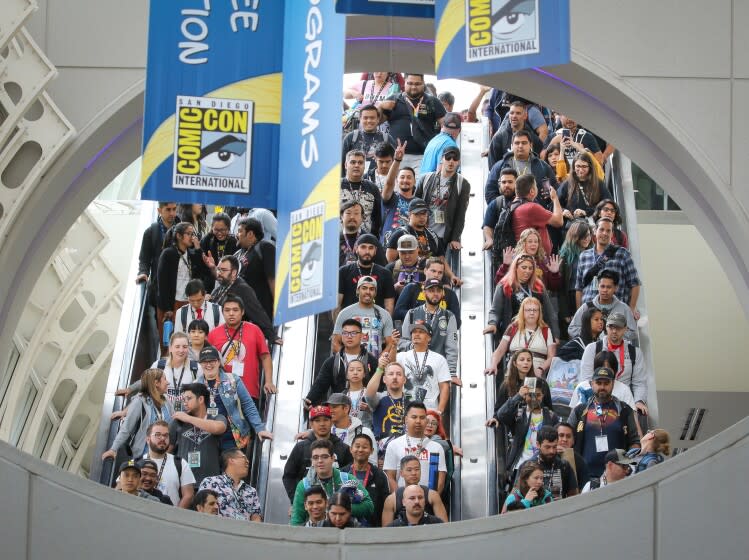This week's San Diego Comic-Con will require masking and testing

San Diego Comic-Con International is upping its coronavirus screenings in the wake of the latest viral surge across California.
Comic-Con is set to return to the San Diego Convention Center July 21-24. It's the first full-scale event since 2019, when more than 130,000 attendees from over 30 countries flocked to downtown San Diego for the typically annual celebration.
Attendees must wear an approved face covering regardless of vaccination status. Mesh coverings, neck gaiters, damaged or torn coverings and face coverings with breathing valves won't be accepted.
Masks should "completely cover the nose and mouth, fit snugly against the sides of the face, and not have any gaps," organizers wrote on the Comic-Con website.
Attendees also will have to provide proof that they are fully vaccinated against the coronavirus, or submit a negative COVID-19 test taken within 72 hours. Guests who don't comply will be removed from the venue, although ticketholders who test positive for the virus within 72 hours can request a full refund by emailing refunds@comic-con.org.
"We are excited to gather again after such a long hiatus," the con website said. "But we want to be sure everyone who attends is as safe as possible. We will continue to update our website as new information becomes available, so be sure to check this page often for the most up-to-date protocols."
The news comes as state officials warned the current coronavirus surge may even top last winter's Omicron wave. L.A. County currently averages about 6,900 coronavirus cases a day — nearly double the peak from last summer's surge — but because at-home coronavirus test results often are not reported, many fear the true number of cases is significantly higher.
“When you look at the [coronavirus] case counts, they’re no longer reliable. There are tremendous undercounts,” Dr. Robert Wachter, chair of the UC San Francisco Department of Medicine, said at a campus town hall Friday. “And the number of cases now probably is not all that dissimilar to what we saw during the massive surge in December and January.”
Times staffers Rong-Gong Lin II and Luke Money contributed to this report.
This story originally appeared in Los Angeles Times.

